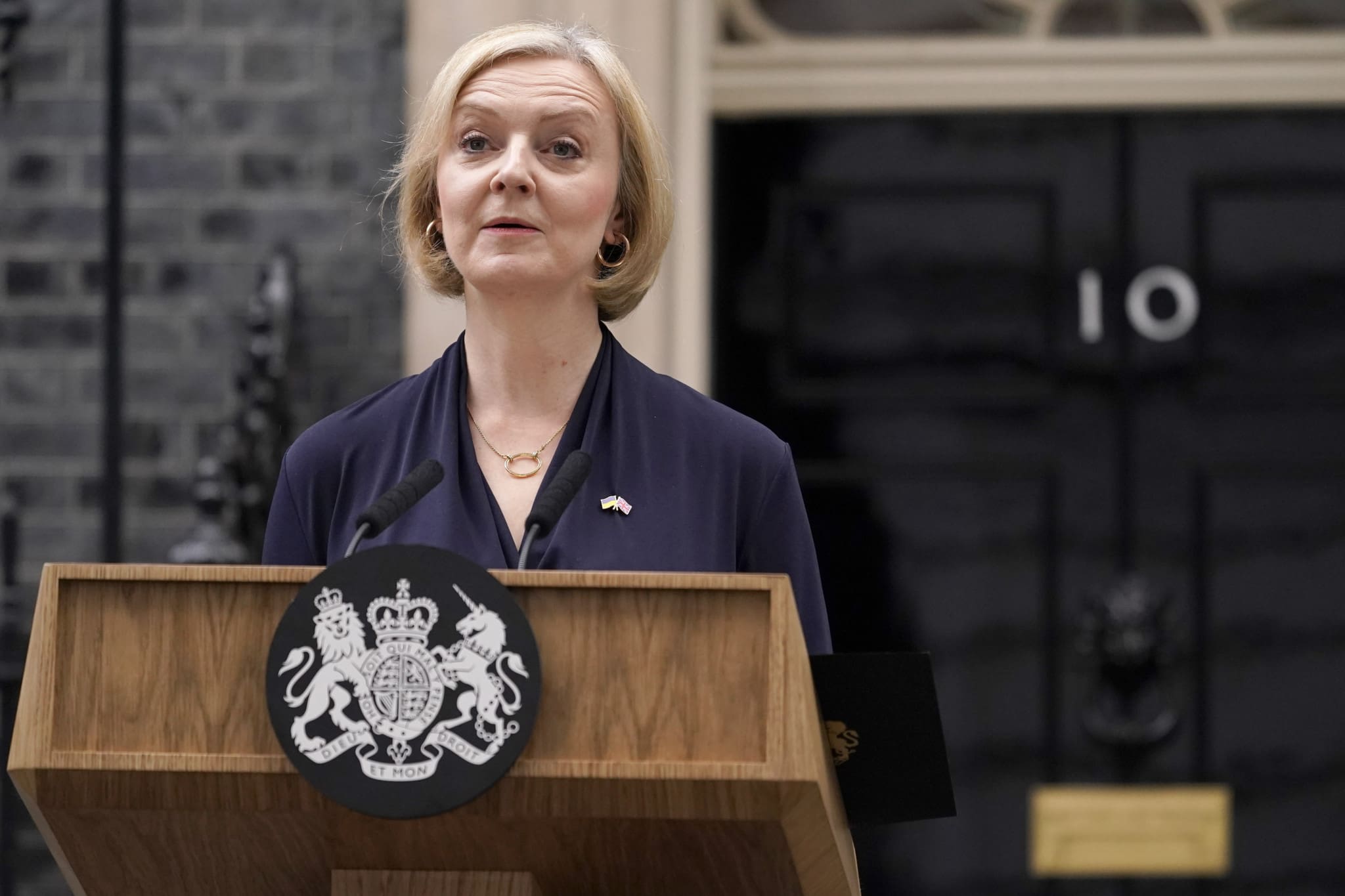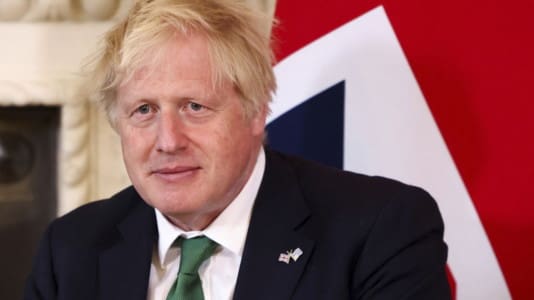Liz Truss has resigned as Britain’s prime minister after just 45 days in office, making her the shortest-serving prime minister in British history.
In a statement outside Downing Street on Thursday afternoon, Truss confirmed she would be standing down as leader of the Conservative party and that there will be a leadership election within the next week.
“I came into office at a time of great economic and international instability. Families and businesses were worried about how to pay their bills. Putin’s illegal war in Ukraine threatens the security of our whole continent, and our whole country has been held back for too long by low economic growth,” Truss said from a lectern outside 10 Downing Street.
“I was elected by the Conservative party to change this. We delivered on energy bills and on cutting national insurance, and we set out a vision for a low-tax, high-growth economy that would take advantage of the freedoms of Brexit.
“I recognize though, given the situation, I cannot deliver the mandate on which I was elected by the Conservative party.
“I have therefore spoken to His Majesty The King to notify him that I am resigning as leader of the Conservative party. This morning, I met the chairman of the 1922 Committee, Sir Graham Brady. We’ve agreed that there will be a leadership election to be completed within the next week. This will ensure that we remain on a path to deliver our fiscal plans and maintain our country’s economic stability and national security.
“I will remain as prime minister until a successor has been chosen,” Truss concluded.
Difficulties arose for Liz Truss last month when she and her then Chancellor Kwasi Kwarteng announced a mini-budget, which outlined the government’s intention to cut taxes and cancel a number of tax hikes that had been announced by Boris Johnson’s former chancellor, Rishi Sunak.
[pp id=52315]
The announcement frightened markets, resulting in a drop in the value of sterling and volatility in the usually stable bond prices. Interest rates and inflation have continued to rise to worrying levels, although it should be stated that there are numerous external factors for the economic instability and similar scenes are being witnessed across the globe.
Despite a brief rally during Prime Minister’s Questions on Wednesday, further political instability saw Home Secretary Suella Braverman resign and hit out at Truss’ failing government as she expressed concern in the trajectory of the administration away from the party’s 2019 general election manifesto commitments to curb migration.
And late on Wednesday night, a frantic vote in the House of Commons over whether to move away from the party’s commitment to ban fracking in light of the current energy crisis saw both the party’s chief whip and deputy chief whip resign, only to unresign; this as parliamentarians headed to the voting lobbies unsure as to whether or not the vote was a confidence motion after conflicting messages arose from Downing Street.
A chaotic 24 hours in Downing Street came to a head on Thursday at lunchtime with crisis talks between the prime minister; her deputy Therese Coffey; the chairman of the backbench committee, Sir Graham Brady; and the Conservative party chairman Jake Berry at 10 Downing Street.
[pp id=52658]
By the time of the statement from Truss, 16 Conservative MPs had publicly called for her to step down.
What happens next is not entirely clear. In ordinary times, there would typically be a leadership contest stretched out over a number of weeks, in which the Conservative parliamentary party would vote for candidates in a ballot and whittle down the contenders to two, which would then be put to the party membership across the country.
This is how Liz Truss was elected just a matter of weeks ago after beating former Chancellor Rishi Sunak in the two-way ballot.
Truss, however, indicated that a leadership contest would take place “within the next week,” suggesting that parliamentarians may bypass membership and seek a unity candidate themselves who will attempt to steer the country and the party through the current turbulent economic and political landscape as the Conservatives repress calls from the leader of the opposition, Sir Keir Starmer, to call a general election.
A move to bypass the membership would, however, deviate from the party’s constitution and need sign-off from the Conservative party’s executive board.
Two-time failed leadership candidate and current Chancellor Jeremy Hunt has confirmed via a spokesperson that he will not be standing for the leadership.





